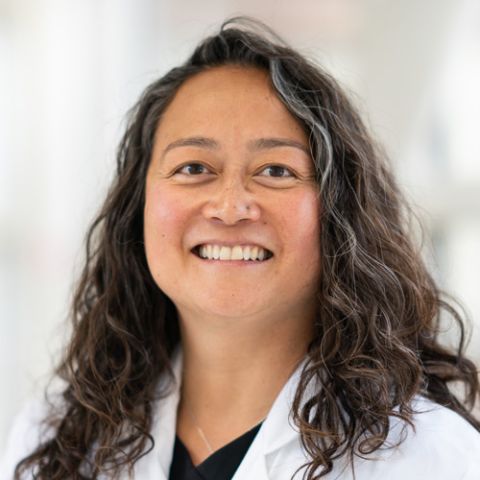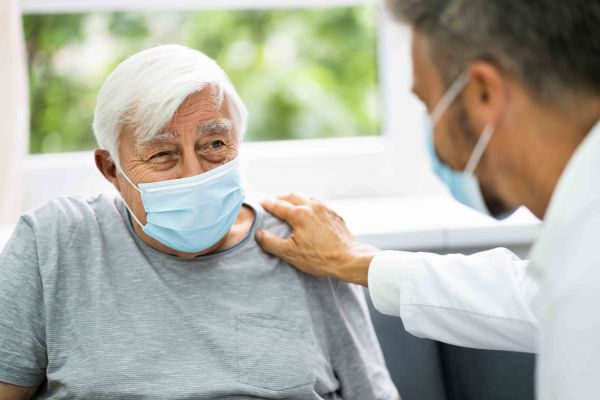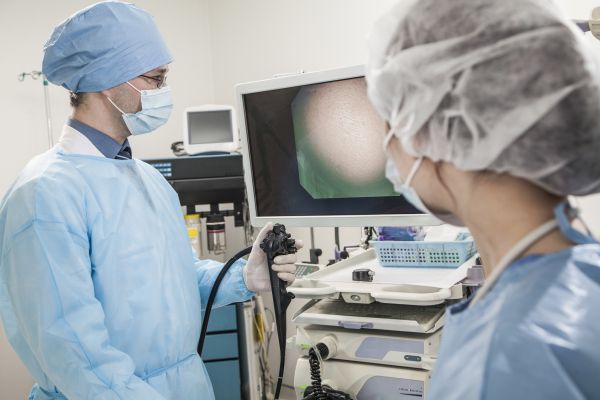The biggest benefit of cancer screening is the potential to not only survive cancer but be cured of it.
Like changing the oil in your car and going to the dentist, cancer screening should be a routine part of life. Cancer screening can detect cancer early at a stage when treatment will most likely work. The biggest benefit of cancer screening is the potential to not only survive cancer but be cured of it. For those who have already had cancer, it's especially important to get screened for other cancer types, too.
Cancer screening is based on age, and sometimes on the risk factors associated with the specific kind of cancer. Patients and survivors may have additional risk factors based on their diagnosis and the types of treatment they had. Roswell Park Comprehensive Cancer Center recommends the general screening guidelines below, and that you also speak with your oncologist or the Survivorship team about additional considerations for you:
Cervical cancer: Pap tests, also called cervical cytology, should begin at ages 21-29, and continue every three years. Between the ages of 30 and 65, patients should be screened every five years with a Pap test and tested for specific strains of human papillomavirus (HPV), a viral infection that can lead to cervical cancer. If you are 45 or younger and have not gotten the HPV vaccine, talk to your health care provider about whether getting the vaccine can help decrease your risk of cervical cancer. After age 65, discuss screening with your healthcare provider, since screening is no longer recommended if previous regular testing has been negative, and if you don’t have a history of cervical cancer. If you had a total hysterectomy (which included removal of your cervix) for reasons other than cervical cancer, no screening is indicated.
More on cervical cancer screening
Colon cancer: People ages 45-75 should be screened either by stool-based testing or a colonoscopy. Stool-based tests can be done from home and include Cologuard, which is done every three years, or FIT, which is done yearly. A colonoscopy allows for “direct visualization” of your colon and can find and remove polyps, which are small clumps of cells in the lining of the colon. The timing of your next colonoscopy will depend on the number and type of any polyps found. If you have a family history of colon cancer, you should have a colonoscopy instead of a stool-based test. If you are age 76-85, talk with your primary care provider to weigh the risks and benefits of screening based on your overall health and prior results.
More on colorectal cancer screening
Breast cancer: Mammogram screening should begin at age 40 at the earliest, and age 50 at the latest, once a year or every two years. Discuss when to start mammogram screenings and how often you should do them with your primary care or gynecology provider, who will take into consideration risk factors such as family history and the results of any prior screenings. Mammograms should continue until age 75 when the decision to screen should be based on your overall health.
More on breast cancer screening
Prostate cancer: A blood test for the prostate specific antigen (PSA) and a digital rectal exam, are used to screen for prostate cancer. The decision to test your PSA should be made together with your primary care physician based on your age, family history and personal medical history. PSA screening may identify slow-growing forms of prostate cancer that may not need treatment right away, or at all. If you decide to have PSA screening it should start between ages 40 and 45 and continue through age 69. You should continue routine screening every year, or every 2 to 4 years, based on your PSA level. Men over 70 do not need to continue getting tested. Please discuss with your physician on your course of action.
More on prostate cancer screening
Lung cancer: If you are a smoker or have smoked within the past 15 years, are at least 50 years old and smoked at least 20 pack/years (one pack a day for 20 years, two packs a day for 10 years, for example) ask your doctor about getting an annual lung cancer screening with a low-dose chest CT.
Cancer screenings are an important part of maintaining a healthy life. Most health insurance plans cover the screenings that are recommended by these current guidelines. Talk to your primary care provider about which cancer screening test you are eligible for. If you have questions regarding cancer screening call the number on your insurance card.
Cancer screening and prevention questionnaire
Cancer screening is simply too important to let slide — when you submit this form, you will be provided with an email summarizing the recommendations for cancer screenings and health behaviors.
Complete the form


